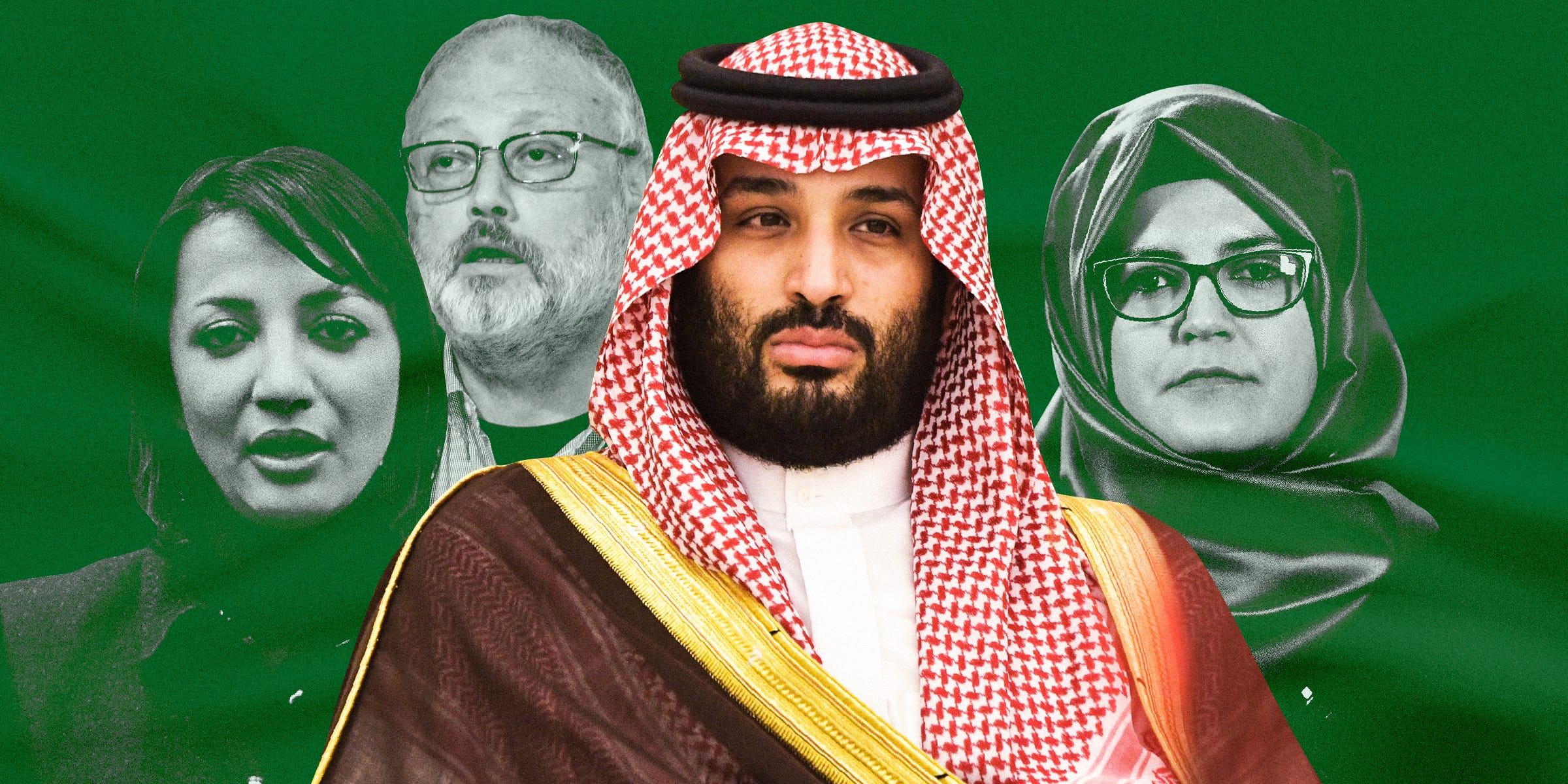
- Michael Kellogg has defended the Saudi government and royal family in US courts for 18 years.
- Several people are currently suing the crown prince, accusing him of murder and hacking attempts.
- Kellogg is criticized for his client choice, but he remains one of DC’s most admired attorneys.
- Visit Business Insider’s homepage for more stories.
For fledgling lawyers striking out in 1980s Washington, DC, it was hard not to catch wind of Michael Kellogg.
Graduating magna cum laude from Harvard Law School in 1982, Kellogg had clerked for Supreme Court Justice William Rehnquist, then moved to New York to work for then-US Attorney Rudy Giuliani as he prosecuted mafiosos from the “Five Families.”
Back in Washington, Kellogg was scooped up by Charles Fried, the US solicitor general. “I took the task of hiring assistants very seriously and he had a wonderful profile,” Fried told Insider in a recent interview.
It was 1987 and the start of what would see Kellogg become one of Washington’s most admired, feared, and successful attorneys. Youth and legal prowess aside, it was clear to others that Kellogg was of a bygone era.
“He’s an example of the old-fashioned, truly civilized lawyer who cares for his soul, and for his community,” Fried said. “He’s also a very elegant man. The way he lives his life is elegant.”
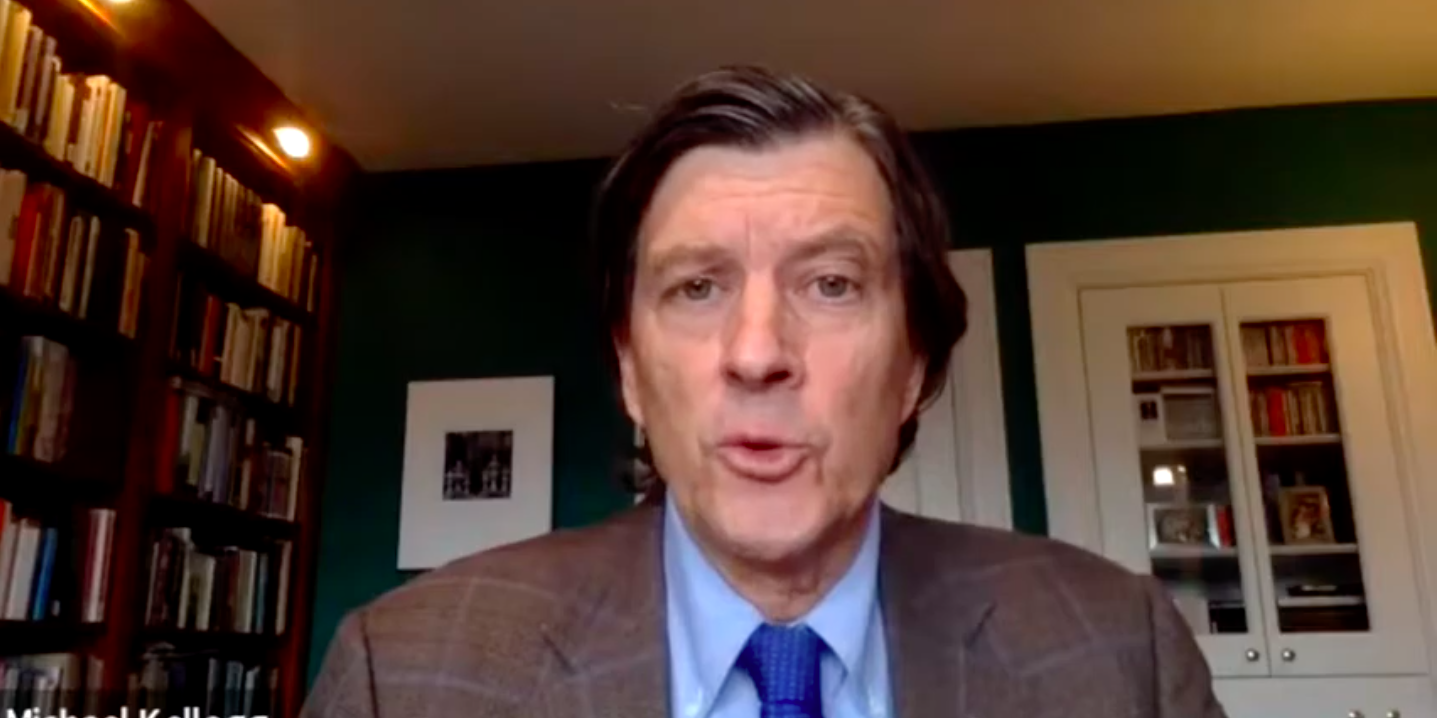
CollegeYearInAthens/YouTube
In a personal reckoning that many prosecutors face, Kellogg left public service in 1990. Three years after joining the Mayer Brown law firm, he left, seeking more autonomy, founding his own firm with two Harvard Law classmates.
The rest is history. Kellogg, Hansen, Todd, Figel & Frederick is now one of the leading boutique firms in the US, known for its eye-watering $330,000 signing bonus for new associates who, like Kellogg, clerked for Supreme Court justices.
Going alone was a natural progression for Kellogg. "It meant being able to fashion the way you want to do things, to build your own shop on personal relations," he told Law360 in 2014. That is the only interview he has given and Kellogg declined multiple requests to be interviewed for this story.
At Kellogg Hansen, Kellogg attracted clients and spearheaded some of the firm's headline wins. "Michael was the leading force when starting his own firm," Roy Englert Jr., a founding partner at Robbins Russell and former colleague of Kellogg, told Insider.
"It is a leap of faith when you start a new firm, but it's not the Herculean task that some might think it to be if you already have good client contacts and know what you're selling."
Saudi Arabia's 'clearing house'
One of those clients stands out from the rest in terms of scale and intrigue.
For the past eighteen years Kellogg, 67, has defended the Kingdom of Saudi Arabia and its royals in the US at a time when the American public has ostracized them.
Kellogg's relationship with the Saudis began after September 11, 2001, when the families of the 3,000 Americans killed that day sued several Saudi entities for damages totalling more than $5 billion.
Lawyers for the plaintiffs say Saudi officials, charities, and businesses in some way supported the work of the terror cell. Saudi Arabia denies involvement in the attack, and the 9/11 Commission report, published in 2004, found no involvement by Saudi royals.
Kellogg, who was first hired in 2003 to represent the senior royal Prince Turki al-Faisal, labeled some of the early evidence alleging official Saudi involvement in the attacks "complete and utter garbage," and sought to have the claims dismissed, with some success.
The public-relations battle following 9/11 has been more one-sided. Fifteen of the 19 attackers were Saudi, which initially made it hard for the kingdom to distance itself, though America's perception of Saudi Arabia did slowly improve in the years following the attack.
That lasted until 2017, when Crown Prince Mohammed bin Salman came to power.
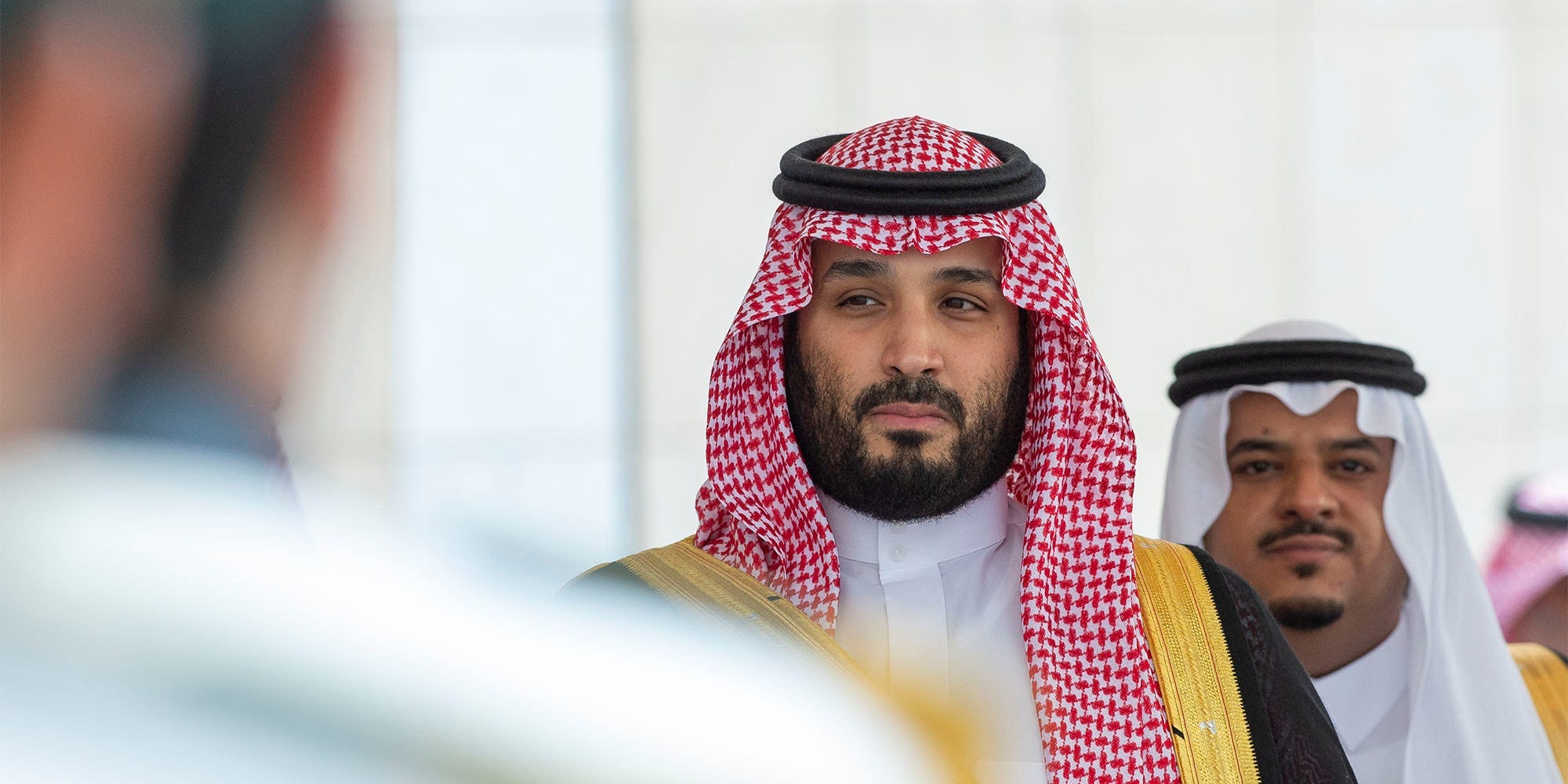
Bandar Algaloud/Courtesy of Saudi Royal Court/Handout via Reuters
Under his watch, MBS has crushed his opposition with abandon, detaining activists, jailing corrupt royals, and facing claims he hacked cellphones, kidnapped minors, and murdered critics.
A number of those targets have sued MBS in the US, meaning Kellogg's workload has reached colossal levels. As a result, his role has also morphed.
"Michael Kellogg is a clearing house for Saudi matters," one Washington lawyer told Insider, adding that Kellogg effectively serves as a quasi-outside general counsel to Saudi leadership, delegating work to other lawyers or taking it himself. This person requested anonymity to speak candidly, but their identity is known to Insider.
The list of grievances against Kellogg's clients is long.
Last August, Saad al-Jabri, the exiled former head of the Saudi Interior Ministry accused MBS of sending a hit squad to kill him in Toronto in 2018. Kellogg filed to dismiss al-Jabri's claim in December.
In September, the al-Jazeera journalist Ghada Ouiess accused MBS of ordering a hack on her cellphone. Kellogg is defending MBS in this claim.
In October, Hatice Cengiz, the fiancée of the murdered journalist Jamal Khashoggi, sued MBS and other Saudi officials in a US federal court in Washington. As of the publication of this article, lawyers for MBS have yet to make themselves known to the court, but Kellogg is widely considered by legal insiders to be among them, if not leading them.
In October 2019, the son of a US military helicopter pilot killed by al-Qaeda in Iraq in 2005 also sued Saudi Arabia, accusing it of providing support to the terrorist group. Kellogg moved to dismiss his claims later that year.

Robert Giroux/Getty Images
Another suit could be coming. It has been suggested that the families of the victims of the December 2019 attack at Naval Air Station Pensacola in Florida - where a Saudi cadet aligned with al-Qaeda shot dead three Americans - may sue the kingdom.
The 9/11 lawsuit is elapsing at a snail's pace, but Kellogg has already successfully defended Prince Turki, who was accused of helping the kingdom's leadership sign deals with Osama bin Laden that would see al-Qaeda refrain from carrying out attacks on Saudi soil. At a private dinner in 2006, Prince Turki stood up to thank Kellogg, who was in attendance, for "getting me off the hook," The Washington Post reported at the time.
'How can a guy like this sleep at night?'
Lawyers and law firms who represent controversial clients are often criticized for doing so. Kellogg is no exception, especially when it comes to those who lost loved ones on 9/11.
"When we speak about Michael Kellogg, the sentiment among many of us is the same: How can a guy like this sleep at night, knowing that he is defending people accused of murdering Americans?" Brett Eagleson, whose father Bruce was killed on 9/11 and is among those suing Saudi Arabia, told Insider.
Once, at a courthouse in the Southern District of New York, the relative of a 9/11 victim confronted Kellogg after noticing him in the elevator. That person went up to Kellogg, telling him "one day God will judge him," Eagleson said.
In another rebuke, Sarah Lee Whitsom, the executive director of DAWN, the organization dreamed up by Khashoggi before his death, told Insider: "Lawyers in the US are prohibited from putting forward false evidence or allowing their clients to perjure themselves, and it's hard to see how Kellogg can avoid this given the facts we already know."
"Ethics and law dictate that Mr. Kellogg should urge his Saudi client MBS to remedy the crimes he's committed as minimally as these civil cases allow, rather than aid him in evading justice with lies," she added.
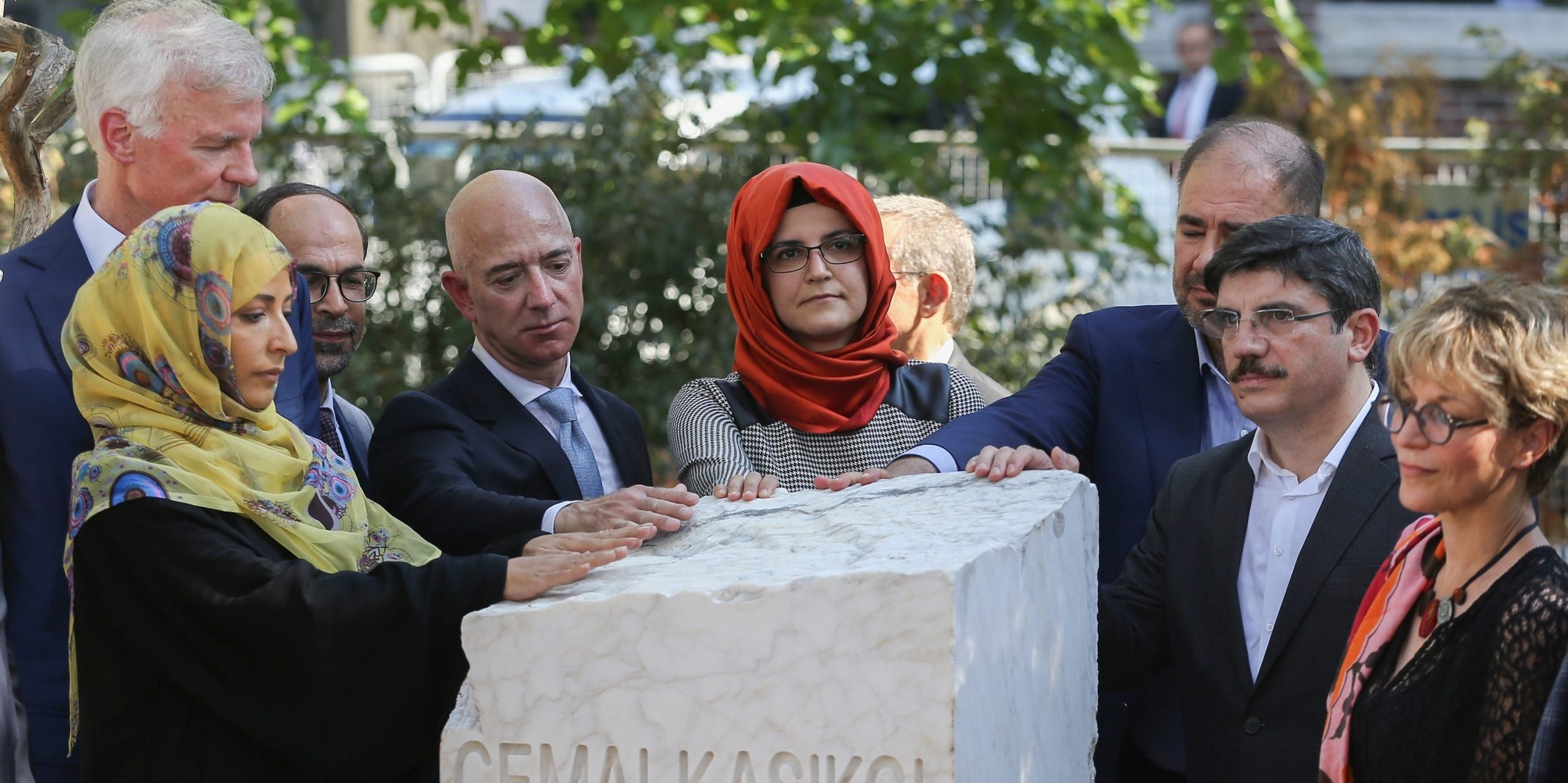
Arif Hudaverdi Yaman/Anadolu Agency via Getty Images
It has become increasingly common to see lawyers being criticized for their choice of clients. Last November, as the law firm Jones Day represented President Donald Trump's campaign to overturn the results of the US election, protesters held signs outside its New York office reading: "Jones Day is killing democracy for profit."
For many, attacking legal representatives undermines the very essence of democracy. "It's deeply un-American and deeply inconsistent with our constitution," Alan Dershowitz, an attorney who has represented Trump, Jeffrey Epstein, and Harvey Weinstein, told Insider. "Without lawyers there is nothing standing between the government and tyranny."
Kellogg is not the type to blur the lines between client and attorney - in fact, he is widely respected for his integrity. "You can keep your distance and do your work, and provide excellent counsel, and cross no lines, and I'm sure that is the case with Michael," said Fried, his former boss.
Of the Saudi cases, Fried said: "It doesn't surprise me and it doesn't disappoint me."
The philosopher-lawyer
Kellogg, a native of Atherton, California, was slightly late in committing to the law. His undergraduate degree - philosophy at Stanford University - led to a master's at Oxford University.
After that, Kellogg ended his philosophical pursuits in favor of Harvard Law, at least until 2010, when he revived them in a series of philosophy books that, he told Law360, he wrote piecemeal in the hour before starting work each morning.
"I have never lost the nagging feeling that philosophy still has much to tell us about how we should live our lives," Kellogg wrote in the preface of his 2010 debut, "Three Questions We Never Stop Asking."
Kellogg is working through the philosophical canon, having since published "The Greek Search For Wisdom," "The Roman Search for Wisdom," "The Wisdom of the Middle Ages," and "The Wisdom of the Renaissance."
These books, according to Fried, are a direct manifestation of Kellogg's conscience: "They were obviously his internal monologues with himself, and his search for wisdom and a good way to live," Fried said.
To that end, Kellogg keeps a low profile in the hyper-social, hyper-political world of Washington. He has attributed much of his success to his family, thanking them profusely in the prefaces of his books.
He and his wife have contributed generously to philanthropic causes in Washington and beyond. Between 2006 and 2018, the pair donated as much as $100,000 annually to the International Rescue Committee, records show. Kellogg is also a member of the Protestant Episcopal Cathedral Foundation, a Washington education foundation set up by Benjamin Harrison, the 23rd US president.
Small hints of Kellogg's political allegiances are littered around campaign-funding archives. From 1997 to 2012, Kellogg donated to the election campaigns of the Republicans George W. Bush, Mike DeWine, Phil Gramm, John McCain, and Giuliani, his former mentor, records show. However, since 2012, Kellogg has backed solely Democratic candidates like Tim Kaine and Bill Weld, Federal Election Commission filings show.
'A brilliant legal mind'
Back in the professional realm, Kellogg is regarded by his contemporaries as an exceptional lawyer and remains one of the US's foremost telecommunications experts, known for his landmark wins representing AT&T, American Express, and Bell Atlantic.
Beyond the victories it is hard to glean much of Kellogg's legal motivations. He has given just one substantial interview, to Law360, and does not comment publicly on active cases. But in that one interview Kellogg outlined his approach.
"My personal style is definitely to be aggressive and blunt and to press hard because, frankly, by the time I'm standing up there I'm absolutely convinced my view is correct, and I'm eager to get the chance to explain to the court why," he said.
"It's a wonderful aspect of my practice that I'm always representing the client that's right."
In his arguments, Kellogg doesn't confuse detail with depth. "So many lawyers think that what you need to do in order to make a point is to say it over and over again," Fried told Insider. "The other way is to say it once, in a way that you don't forget it. That would be Mike's style."
Assistants to the Solicitor General often help one another prepare their Supreme Court arguments, and Englert, another of Fried's old assistants, told Insider: "He was very, very good." Scott Knudson, a partner at Taft Stettinius & Hollister LLP who overlapped with Kellogg under Justice Rehnquist, said Kellogg was "an excellent writer, and a brilliant legal mind." David Jaffe, a lawyer who clerked for Rehnquist after after Kellogg, described him as "extremely disciplined" and "supremely confident."
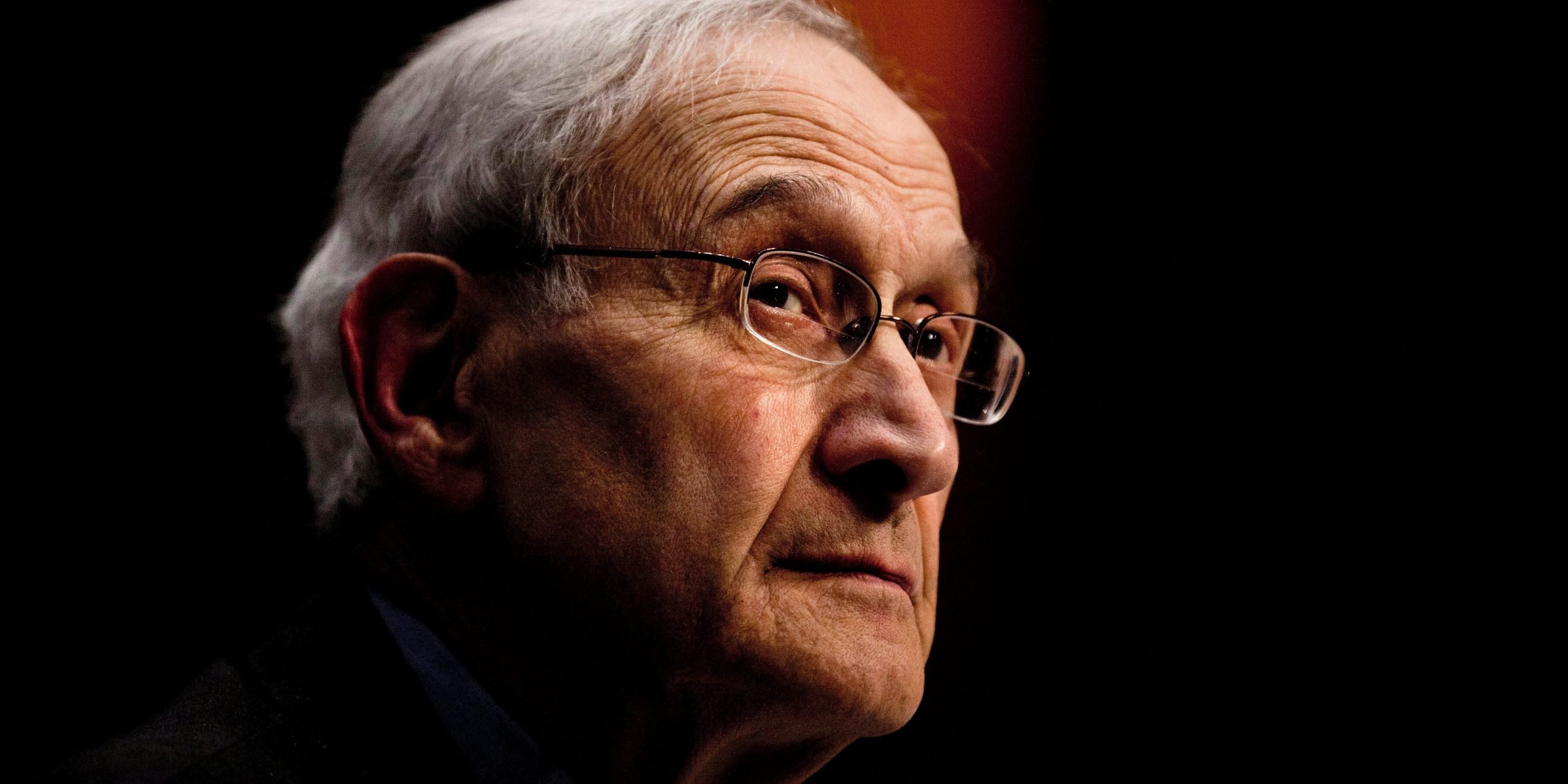
Brendan Smialowski/Getty Images
Surprisingly - and at odds with his sincere, thrusting manner in court - Kellogg is also known around Washington for his ability to hold a tune. "A talented singer," Jaffe remembered. "He loved opera."
With the lawsuits facing MBS, Kellogg has his work cut out, and his fair share of criticism to shoulder. Yet he has still found the time to be successful, and find meaning outside the law.
Indeed, in March 2019, Fried, the former US Solicitor General, invited Kellogg to return to Harvard and speak to students as a distinguished alumnus.
"To talk about the life of a lawyer," Fried told Insider. "And how that is not inconsistent with self-reflection and a search for wisdom and a search for virtue."
But for Eagleson, the son of the 9/11 victim, Kellogg's choice of client has undermined that search.
"I think it's unfathomable," he said, "and I think somewhere along the way Michael Kellogg lost his way."